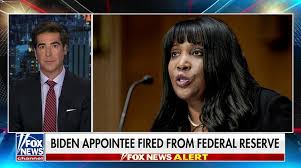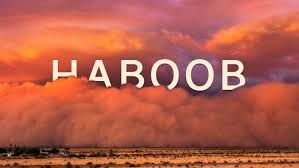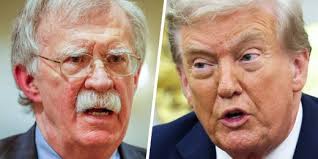
Introduction
Few figures in modern American foreign policy have generated as much debate, admiration, and controversy as John Robert Bolton. Known for his hawkish stance on international affairs, his sharp critiques of international institutions, and his unapologetic advocacy for American strength abroad, Bolton has left an indelible mark on U.S. diplomacy and politics. His career spans decades of government service, from the Reagan era through the Trump administration, during which he served as National Security Adviser.
Supporters hail him as a principled realist who recognizes the dangers posed by authoritarian regimes, terrorism, and the proliferation of nuclear weapons. Critics, however, accuse him of being a warmonger, dismissive of diplomacy, and too willing to advocate for military interventions.
This article provides a 4,000-word exploration of John Bolton’s life and career, tracing his early years, his rise in government, his key positions, his philosophy of foreign policy, his tenure as U.S. Ambassador to the United Nations, his role as National Security Ad visor under Donald Trump, and the controversies that continue to surround him.
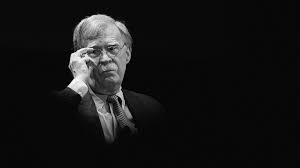
Early Life and Education
Childhood and Family Background
John Robert Bolton was born on November 20, 1948, in Baltimore, Maryland, to Edward Jackson Bolton, a firefighter, and Virginia Clara “Ginny” Bolton, a housewife. Growing up in a working-class family, Bolton’s early life was marked by modest means, but also by the discipline and determination instilled by his parents.
Education
Bolton attended McDonald School, a private preparatory institution, where he excelled academically. His intellectual sharpness and strong work ethic earned him a place at Yale University, where he pursued a Bachelor of Arts degree in political science. While at Yale, Bolton became deeply influenced by conservative thought and sharpened his debating skills, traits that would later define his public persona.
He graduated with honours in 1970 and proceeded to Yale Law School, earning his Juries Doctor (J.D.) in 1974. During his time at Yale, Bolton was exposed to both liberal and conservative viewpoints but gravitated toward a worldview that emphasised scepticism of international institutions and the primacy of U.S. sovereignty.
Early Political Career
Entry into Politics
Bolton began his career working as a law clerk and then entered the world of conservative legal advocacy through the American Enterprise Institute (AEI) and other right-leaning organisations. His first significant political role came during the Reagan administration, when he served in various positions at the U.S. Agency for International Development (USAID) and later at the Department of Justice.
Roles in the Reagan and George H.W. Bush Administrations
During the Reagan years, Bolton developed a reputation as a staunch conservative who favoured a hardliner stance against the Soviet Union. He was sceptical of arms control treaties, arguing that they often constrained the United States more than its adversaries.
In the George H.W. Bush administration, Bolton served as Assistant Secretary of State for International Organisation Affairs. In this role, he developed his signature scepticism of the United Nations and multilateral diplomacy, famously declaring that “if the UN Secretariat building in New York lost ten stories, it wouldn’t make a bit of difference.” This remark exemplified his disdain for what he saw as bureaucratic inefficiency and anti-American bias within the UN.
Bolton’s Foreign Policy Philosophy
Realism with a Hawkish Edge
Bolton’s worldview is often described as neoconservative, but he differs from mainstream neoconservatives in important ways. While he shares their belief in American exceptionalism and military strength, he is less committed to nation-building and democracy promotion. Instead, Bolton emphasises raw power, deterrence, and the unilateral defence of American interests.
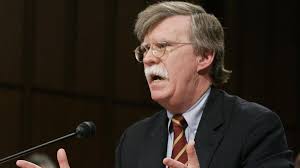
Skepticism of International Institutions
One of Bolton’s most defining traits is his hostility toward multilateral institutions. He has long argued that organisations like the UN, NATO, and the International Criminal Court often undermine U.S. sovereignty. In his view, international treaties should be tools of convenience, not binding obligations that limit America’s freedom of action.
Views on Adversaries
- Russia and China: Bolton has consistently warned of the dangers posed by Moscow and Beijing, criticizing arms control treaties and calling for stronger deterrence.
- Iran: Perhaps no issue has defined Bolton more than his opposition to Iran’s nuclear program. He has repeatedly argued for military strikes to prevent Tehran from acquiring nuclear weapons.
- North Korea: Similar to his stance on Iran, Bolton has rejected diplomacy as insufficient and has suggested regime change as the only permanent solution.
Role as U.S. Ambassador to the United Nations (2005–2006)
Appointment and Controversy
In 2005, President George W. Bush nominated Bolton to serve as U.S. Ambassador to the United Nations. His nomination was fiercely opposed by Democrats and some moderate Republicans, who cited his disdain for the UN and reports of his abrasive management style.
Bush ultimately installed him via a recess appointment, bypassing Senate confirmation.
Tenure at the UN
During his brief tenure, Bolton pushed for reforms to reduce corruption and inefficiency in the UN. He was instrumental in shaping resolutions on Iran’s nuclear program and North Korea’s weapons tests. While his supporters praised his tough stance, critics argued that his confrontational style alienated allies and undermined American diplomacy.
By late 2006, facing opposition to his confirmation, Bolton resigned. His departure reflected the difficulty of reconciling his hardline approach with the collaborative nature of diplomacy.
Private Sector Work and Think Tank Influence
After leaving the Bush administration, Bolton returned to the American Enterprise Institute (AEI), where he became a senior fellow. He also worked as a commentator on Fox News, wrote opinion pieces, and remained a vocal critic of U.S. foreign policy under both Republican and Democratic presidents.
During the Obama years, Bolton was especially critical of the Iran nuclear deal (JCPOA), calling it a historic mistake that would empower Tehran and destabilize the Middle East. His advocacy for withdrawing from the deal gained traction among conservatives and later influenced Donald Trump’s decision to abandon the agreement.
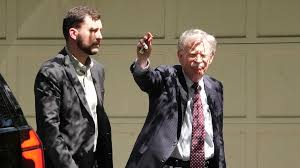
National Security Advisory under Donald Trump (2018–2019)
Appointment
In March 2018, President Donald Trump appointed John Bolton as National Security Advisory, replacing H.R. Master. The choice was controversial, as Bolton’s hawkish views seemed at odds with Trump’s more isolationist rhetoric.
Key Issues
- North Korea: Bolton pushed for maximum pressure, clashing with Trump’s more conciliatory approach toward Kim Jong-un.
- Iran: Bolton strongly supported Trump’s withdrawal from the Iran nuclear deal and advocated for a more aggressive stance toward Tehran.
- Venezuela: Bolton backed efforts to oust Nicolás Maduro, though the campaign faltered.
- Afghanistan: He opposed negotiations with the Taliban, preferring a continued U.S. military presence.
Clashes with Trump
Bolton’s tenure was marked by conflict with Trump himself. While both men favoured a tough posture, Bolton often advocated for military strikes and escalation, while Trump preferred unpredictability and deal-making. Their relationship soured, and in September 2019, Bolton either resigned or was fired, depending on whose account one believes.
Bolton’s Memoir: The Room Where It Happened
In 2020, Bolton published his memoir, The Room Where It Happened, which offered an insider’s account of his time in the Trump administration. The book accused Trump of prioritising personal political gain over national security, claiming, for example, that Trump asked China’s Xi Jingling for help in the 2020 election.
The memoir was both widely read and heavily criticised. Trump denounced it as fiction, while others faulted Bolton for not testifying during Trump’s impeachment trial, choosing instead to profit from his book.
Controversies and Criticism
- Warmongering Reputation: Bolton is often accused of pushing for unnecessary wars, particularly with Iran and North Korea.
- UN Skepticism: His disdain for diplomacy and international law alienated allies and fueled criticism.
- Management Style: Former colleagues have described him as abrasive, uncompromising, and dismissive of dissenting opinions.
- Trump Administration Fallout: Critics argue that Bolton failed to restrain Trump and later exploited insider information for personal gain.
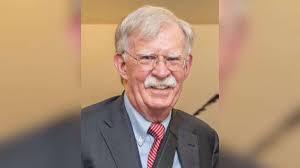
Legacy and Influence
Despite his polarising nature, Bolton has been influential in shaping U.S. foreign policy debates for decades. His steadfast defence of American sovereignty, his distrust of international agreements, and his calls for military deterrence have resonated with many conservatives. At the same time, his confrontational style and preference for hard power over diplomacy have limited his ability to build coalitions.
Bolton’s career raises enduring questions about the balance between realism and diplomacy, the role of multilateral institutions, and the limits of American military power.
Conclusion
John Bolton remains one of the most controversial figures in modern U.S. foreign policy. For his supporters, he is a principled realist who recognises the threats facing America and refuses to sugarcoat them. For his detractors, he is a dangerous ideologue whose hawkishness risks dragging the country into endless wars.
His career, spanning from the Reagan administration to the Trump White House, illustrates the tensions within American conservatism: between unilateralism and multilateral ism, diplomacy and force, isolationism and interventionism. Regardless of one’s view of him, Bolton’s impact on U.S. foreign policy is undeniable.

